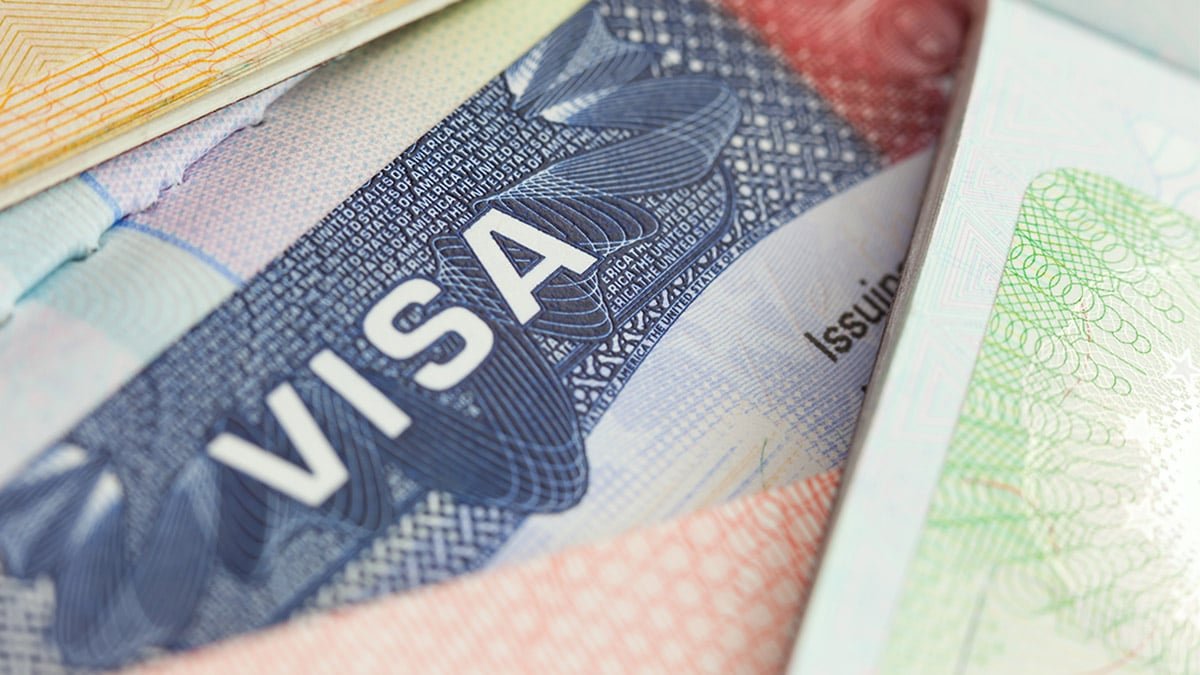On September 19, 2025, President Donald Trump signed a proclamation introducing a $100,000 fee on H-1B visa applications, effective from September 21, 2025. (apnews.com). In fiscal year 2024, the U.S. approved 399,395 H-1B petitions in total. India dominated with around 71% of approvals, followed by China at 11.7%. Nigeria secured just 2,273 approvals—less than 1% of the total. With the new six-figure fee, the road to America for Nigerian professionals, already narrow, is set to become even steeper.
Why the $100,000 Fee on H-1B Visas Matters
The H-1B visa has long been central to America’s ability to attract global talent, particularly in technology and research. It allowed U.S. companies to hire skilled foreign workers—engineers, software developers, doctors, and academics—many of whom built careers that powered Silicon Valley and U.S. universities.
The $100,000 fee on H-1B visas dramatically increases the cost of sponsorship. For employers, especially startups and mid-sized firms, this may be prohibitive. Larger corporations will likely restrict sponsorships to only the most specialised or revenue-critical roles. For countries like Nigeria, with only a small slice of the approvals to begin with, the chance of securing a slot under the new regime looks even slimmer.
The Political Context: Trump, MAGA, and Immigration
This policy is firmly rooted in the Trump-era “Make America Great Again” (MAGA) agenda, which frames immigration—even legal immigration through work visas—as a threat to U.S. jobs. The H-1B visa, once seen as a channel for bringing in the world’s best and brightest, is increasingly portrayed as a mechanism for “cheap labour.”
The $100,000 fee is less about economics than about political messaging. It appeals to Trump’s voter base but risks undercutting the very innovation economy that has depended on foreign talent for decades. Experts note that this inward turn may come at the cost of America’s long-term competitiveness, especially in high-growth sectors like AI, biotech, and fintech.
Nigerians and the Numbers: A Small Share at Big Risk
The 2024 data underscores the challenge for Nigerians:
-
399,395 H-1B petitions approved in FY 2024.
-
India: ~71% of all approvals.
-
China: ~11.7%.
-
Nigeria: just 2,273 approvals—less than 1% of the total.
This tiny share means Nigerians are already competing in an extremely crowded global field. The $100,000 fee on H-1B visas will likely reduce approvals further, as U.S. employers prioritise candidates from dominant source countries or those in ultra-specialised roles.
How the $100,000 Fee on H-1B Visas Impacts Nigerians Seeking to Relocate
For Nigerians, the H-1B visa has been a prized—if limited—pathway to the U.S. But the new fee adds several layers of difficulty:
-
Early-Career Tech Professionals – Young Nigerian developers and engineers may find employers unwilling to sponsor entry-level positions under the new cost regime.
-
Healthcare Workers – Nigerian doctors and nurses, who have long filled critical shortages in U.S. hospitals, could see their opportunities curtailed as hospitals weigh the six-figure cost.
-
Researchers and Academics – Nigerian postgraduate students hoping to transition into U.S. research roles face shrinking prospects as universities cut back on sponsorships.
-
Mid-Tier Professionals – Business analysts, accountants, and project managers may no longer qualify, as employers focus sponsorships on only the most revenue-critical positions.
-
Families and Migrants – For Nigerians planning family relocation, the six-figure fee creates both financial and psychological barriers.
A Steeper Road Ahead
The $100,000 fee on H-1B visas is not just a bureaucratic change; it is a signal of America’s inward political turn. In FY 2024, Nigerians secured only 2,273 approvals out of nearly 400,000, highlighting how marginal their share already is. With the new fee, even those limited opportunities are likely to shrink further.
For Nigerian professionals, the U.S. dream remains alive, but it has become costlier, rarer, and far more selective. Increasingly, Nigerians may be forced to redirect their ambitions to the UK, Canada, or Asia, where immigration systems are more predictable—and where the price of entry is not $100,000.

